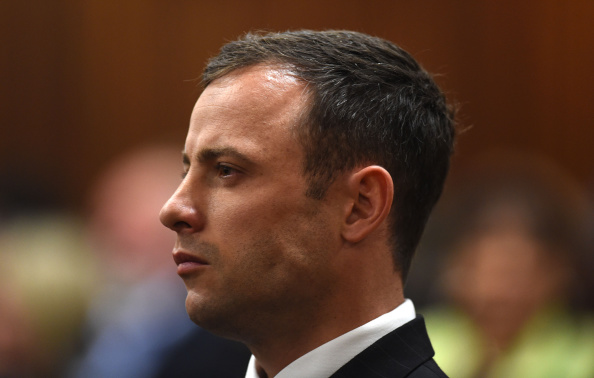
South African Paralympic athlete Oscar Pistorius, in prison for murdering his girlfriend Reeva Steenkamp, may soon meet her parents as part of the process leading to parole being considered, officials say.
He is eligible for possible release after having served half his sentence.
But he first has to take part in what is called “restorative justice”.
Pistorius shot Steenkamp dead in 2013 saying he mistook her for a burglar at his home in the capital, Pretoria.
The 34-year-old fired four times through a locked toilet door.
In 2014, at the conclusion of a trial that was followed around the world, he was given a five-year term for manslaughter. But Pistorius was found guilty of murder on appeal in 2015 and the sentence was later increased to 13 years and five months.
In a statement, South Africa’s department of correctional services said it was talking to the Steenkamp family about a possible meeting.
Outlining what needs to happen before parole is considered, the statement says that offenders must “acknowledge and take responsibility for their actions”.
As part of the restorative justice process there has to be “an opportunity for parties to reconcile or an apology”.

The Steenkamps’ lawyer, Tania Koen, told national broadcaster SABC that they “would like to participate in the victim-offender dialogue”.
“June [Steenkamp, Reeva’s mother] has always said that she has forgiven Oscar, however that doesn’t mean that he mustn’t pay for what he has done… Barry [Steenkamp, Reeva’s father] battles with that a bit, but that is something he will have to voice at the appropriate time,” Ms Koen added.
“The wound, even though so much time has passed, is still very raw.”
Being eligible for parole is not the same as being entitled to it and so it is not a forgone conclusion that he will be released, the lawyer said. The authorities will also have to consider a number of reports written by prison officials as well as other professionals.
There had also been some confusion over when the parole process could begin.
It was widely believed that it would not be until March 2023, but the Steenkamps were “very shocked and quite taken aback” that he was already eligible, Ms Koen said.
The BBC’s Pumza Fihlani in Johannesburg says that if granted parole, Pistorius would serve the remainder of his sentence at home and need to report to prison officials regularly.
Prior to the murder, Pistorius had become well known as a Paralympic gold medallist. In 2012, he made history by becoming the first amputee sprinter to compete at the Olympics running on prosthetic “blades”.
His legs were amputated below the knee when he was 11 months old because he was born without fibula bones.
Rise and fall of Oscar Pistorius
- August 2012: Competes in London Olympics and Paralympics, where he won a gold medal
- February 2013: Shoots dead his girlfriend Reeva Steenkamp
- March 2014: Trial begins
- September 2014: Judge finds Pistorius guilty of culpable homicide
- October 2014: Begins five-year sentence
- October 2015: Transferred to house arrest
- December 2015: Appeal court changes verdict to murder
- July 2016: Sentenced to six years in jail for murder
- November 2017: Sentence more than doubled to 13 years, five months






Be the first to comment